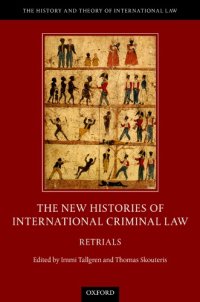The language of international criminal law has considerable traction in global politics, and much of its legitimacy is embedded in apparently 'axiomatic' historical truths. This innovative edited collection brings together some of the world's leading international lawyers with a very clear mandate in mind: to re-evaluate ('retry') the dominant historiographical tradition in the field of international criminal law.
Seventy years after Nuremberg and Tokyo, and twenty years after the Rome Conference, international criminal law seems to have developed a 'Whig' historiography of its own. This historiography at times creates a mythological life of past law and its institutions and actors, and on which-in the absence of a glorious present to laud-hopes for a shiny new future are built. This volume is boldly calling for a retrial of this historiographical tradition, in fact many of them: Retrials. Carefully curated, and with contributions by leading scholars, this book pursues three research objectives: to bring to the fore the structure and function of contemporary histories of international criminal law, to take issue with the consequences of these histories, and to call for their demystification. The essays discern several registers on which the received historiographical tradition must be retried: tropology; inclusions/exclusions; gender; race; representations of the victim and the perpetrator; history and memory; ideology and master narratives; international criminal law and hegemonic theories; and more. The book intervenes critically in the fields of international (criminal) law and international legal history by bringing in new voices and fresh approaches. Taken as a whole, it provides a rich account of the dilemmas, conundrums, and possibilities entailed in writing histories of international criminal law beyond, against, or in the shadow of the master narrative.
Read more... 